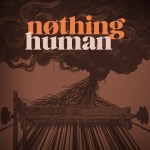
/
RSS Feed
Michael introduces both the Nothing Human podcast and his first multi-part series on the Three Powers of the Human Spirit. Join him as he introduces the ancient categories of mind, heart, and will and begins an exploration of their meaning-making capacity in biblical theology, self-awareness, and persuasion.
Links
How Christian Rationalism Turned Me Into a Psychopath

Would you say there are other powers besides these three but as a set these are relevant powers that most people should learn about? Or that these are distinguished because they’re the three that people collectively call the soul?
Examples of other potential powers off the top of my mind: communication/expression, identity/essence/being?, memory/recall, conscious self vs. ‘autopilot’
—
How you described the Holy Spirit is intriguing. Why do you think the Father and Son are described in the masculine or male while the Holy Spirit is in the feminine but named something like ‘Holy Spirit’ and not something more familial, like mother or daughter? Why is there a father/son familial relationship that’s familial that doesn’t include the Holy Spirit in the same familial sense? From my limited knowledge, it seems like the Holy Spirit is excluded from a type of relationship with the other two that the other two share but the Holy Spirit doesn’t share with them. Like, if I were describing me, my wife, and the close friend that rents a room from us. The friend isn’t a relative or familial-y related… See what I’m getting at?
Hi, Joe! Thanks for commenting.
I’m not sure which episode I say this, but I think the three powers are plenary, in the sense that they cover all available options. The capacities you are talking about would all be part of the three powers or the interplay of them. For instance, communication or expression is a function of our process of naming that is intellectual, but it can be shaped by the other powers and its purposes might be in service to the other powers. Identity is often shared between the three powers, but regularly the Bible locates it in the will. Memory is a process in support of the intellect when done consciously, but memory also can connect to affectional experiences and habits (of the will). Consciousness also functions between the powers, though often it involves, again, the naming process and self-reflection of the intellect. In other words, the things you mentioned can be described under the three powers as processes or interplay of or between them. Much of what you are talking about also involves bodily processes which function integrally with the spiritual powers.
The Holy Spirit is feminine grammatically in the OT and neuter in the NT. God Himself is not gendered, but the source of human gender. I think Father and Son in the Trinity is not so much a family/reproductive picture. The Muslims mistakenly believed, since they assumed the family picture, that the Trinity consisted of Father Son and the Virgin Mary. Some Christians I guess function like that. But I don’t think of the Trinity in strictly familial terms. The Spirit is of the Father and Son and between them. The Father is the cause, the Son the end (what comes from and of it—telos). The Spirit the unity between them. But as an eternal being, there is no priority of time or logic here in the Trinity. I think perhaps that’s one reason for the Bible rejecting “the divine family” characterization. Because the Father doesn’t actually precede the Son. Or reproduce. Or whatever. I don’t know if that helps at all. But it’s definitely intriguing and worth thinking about. So thanks for that!